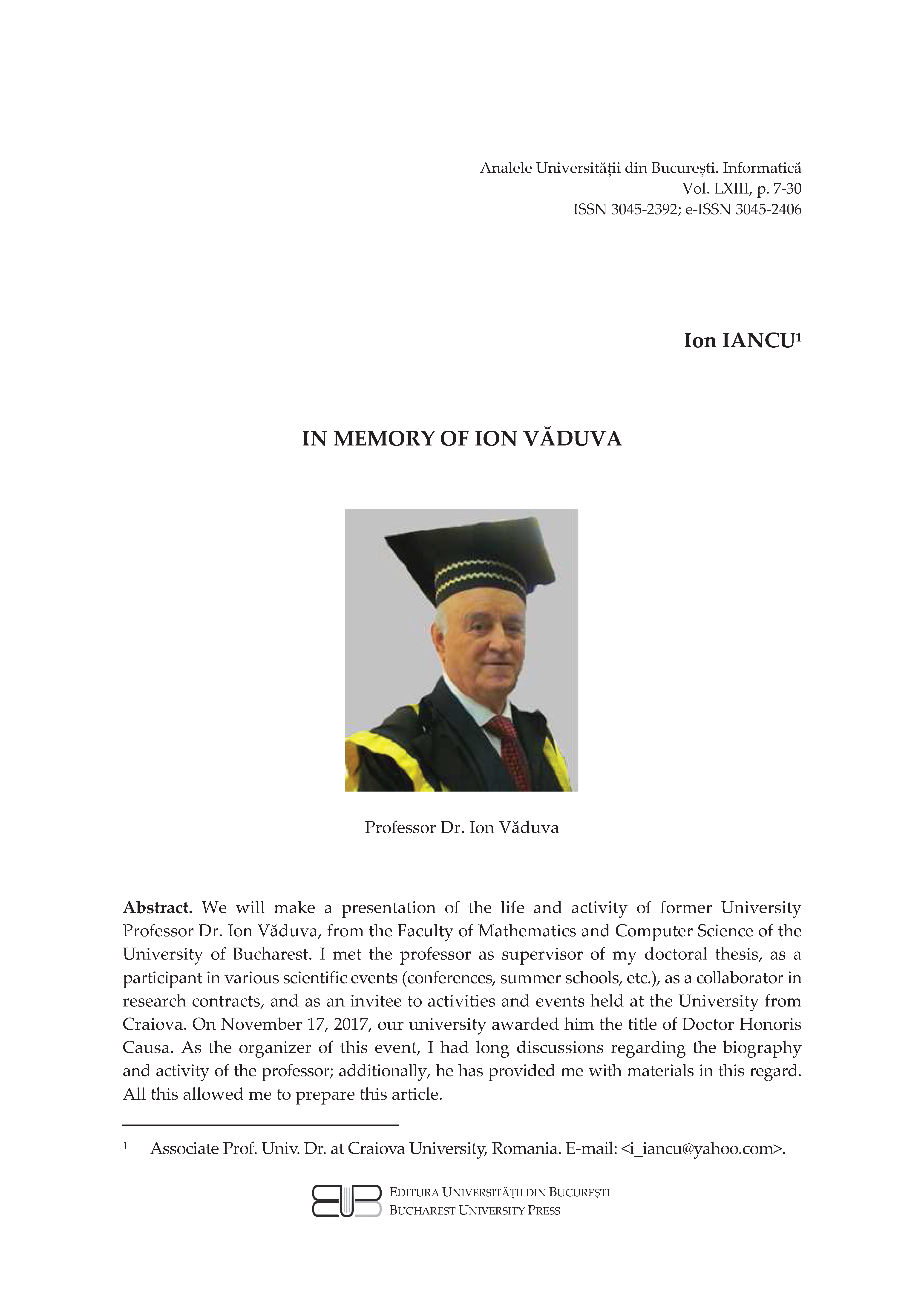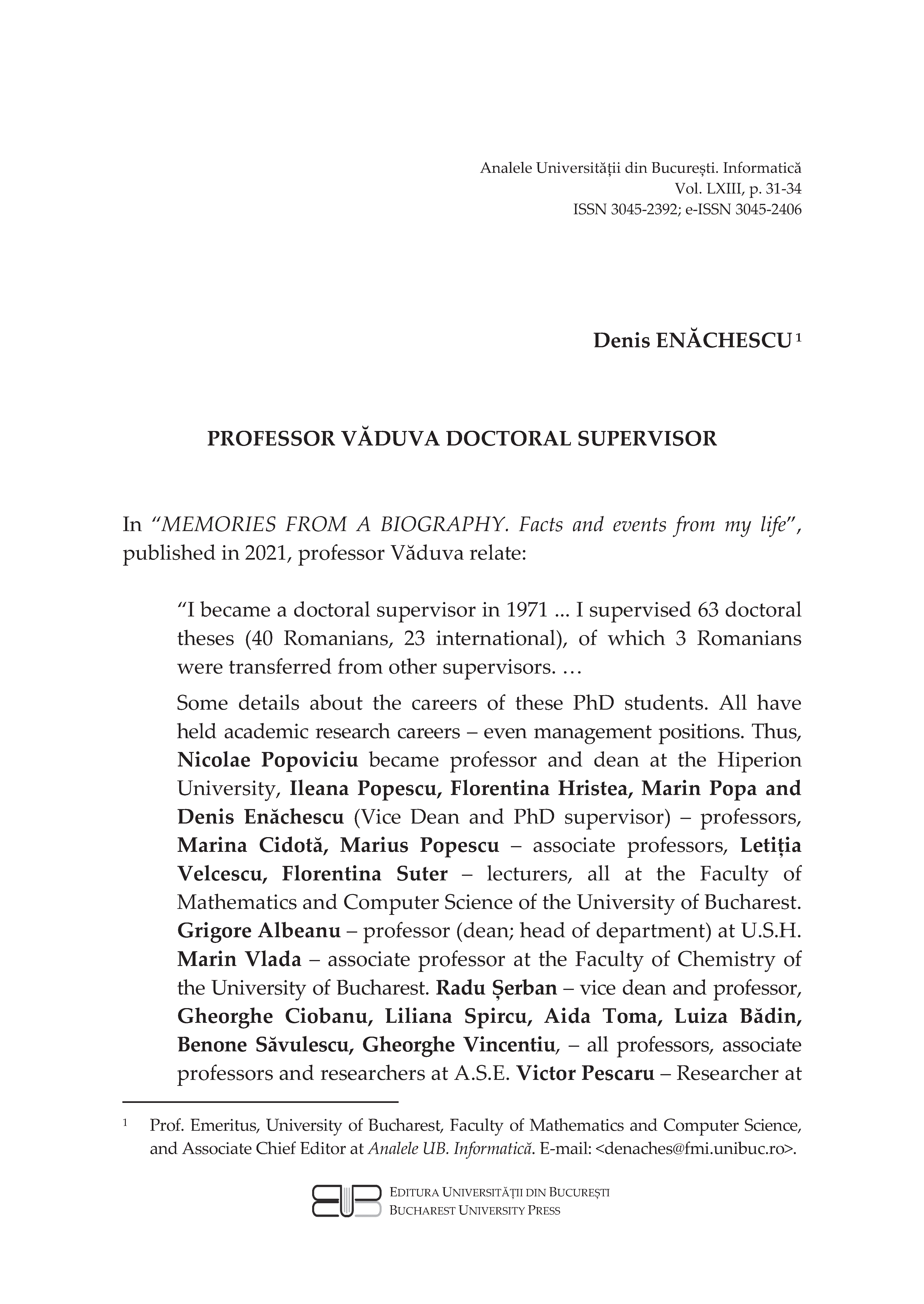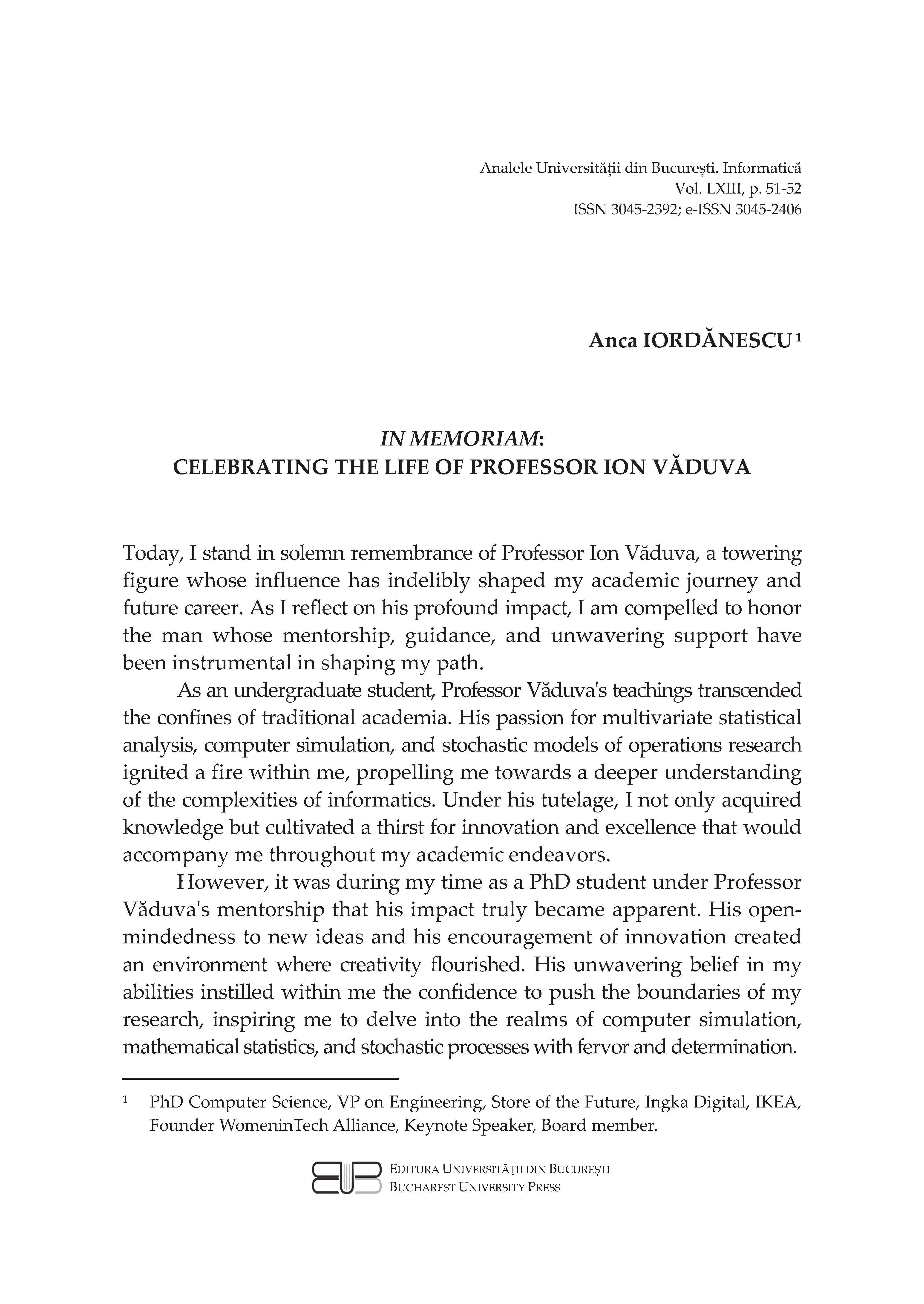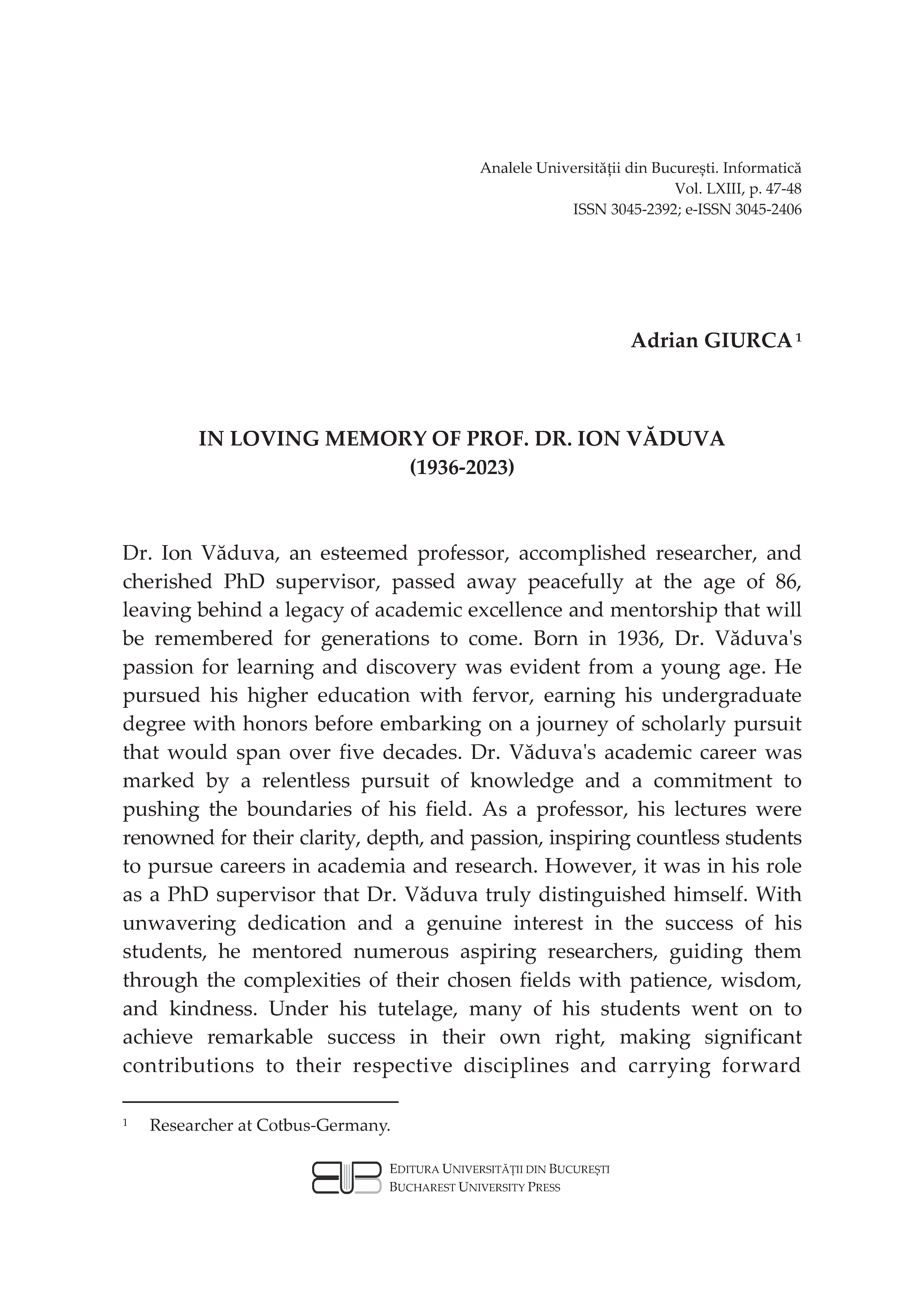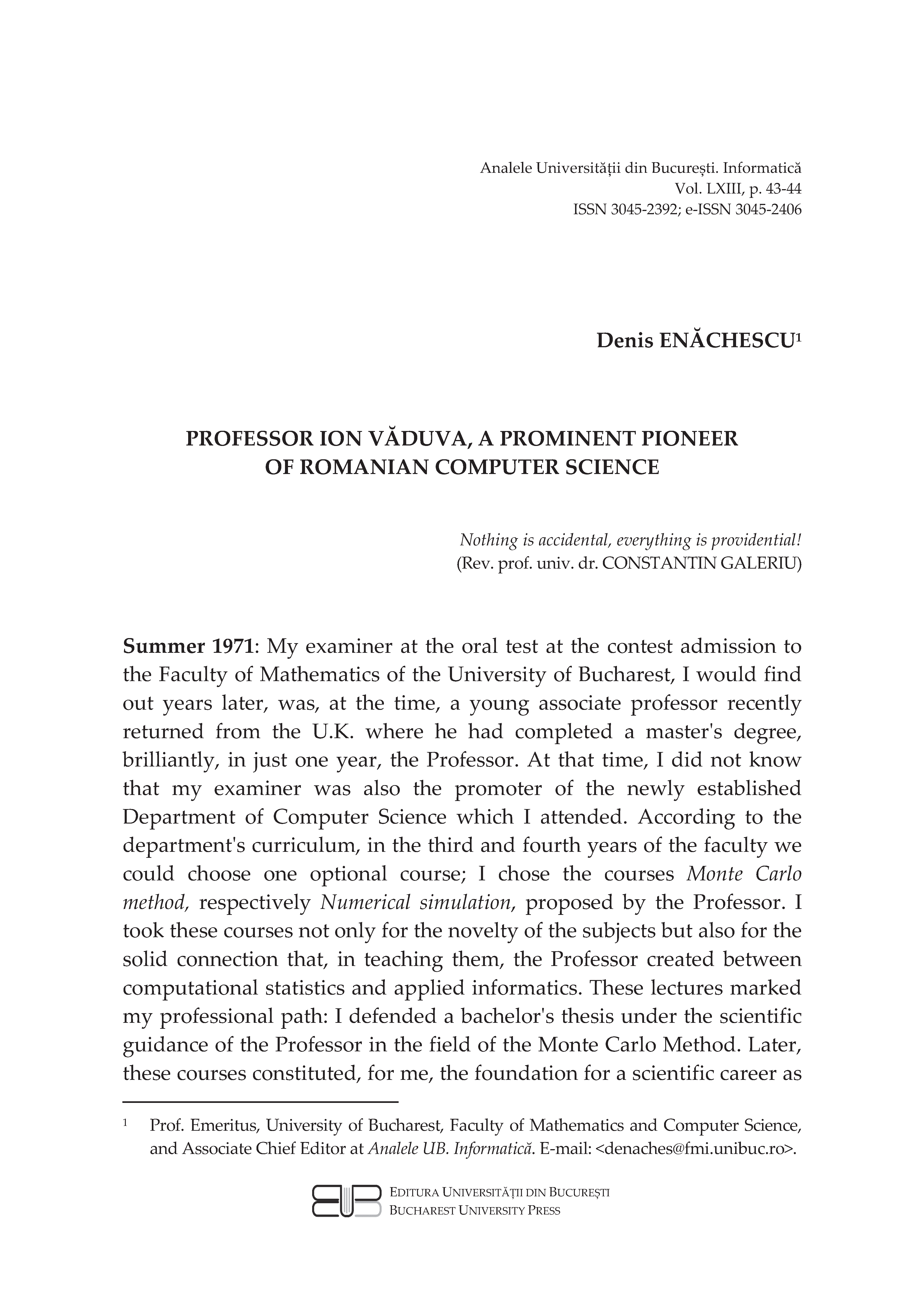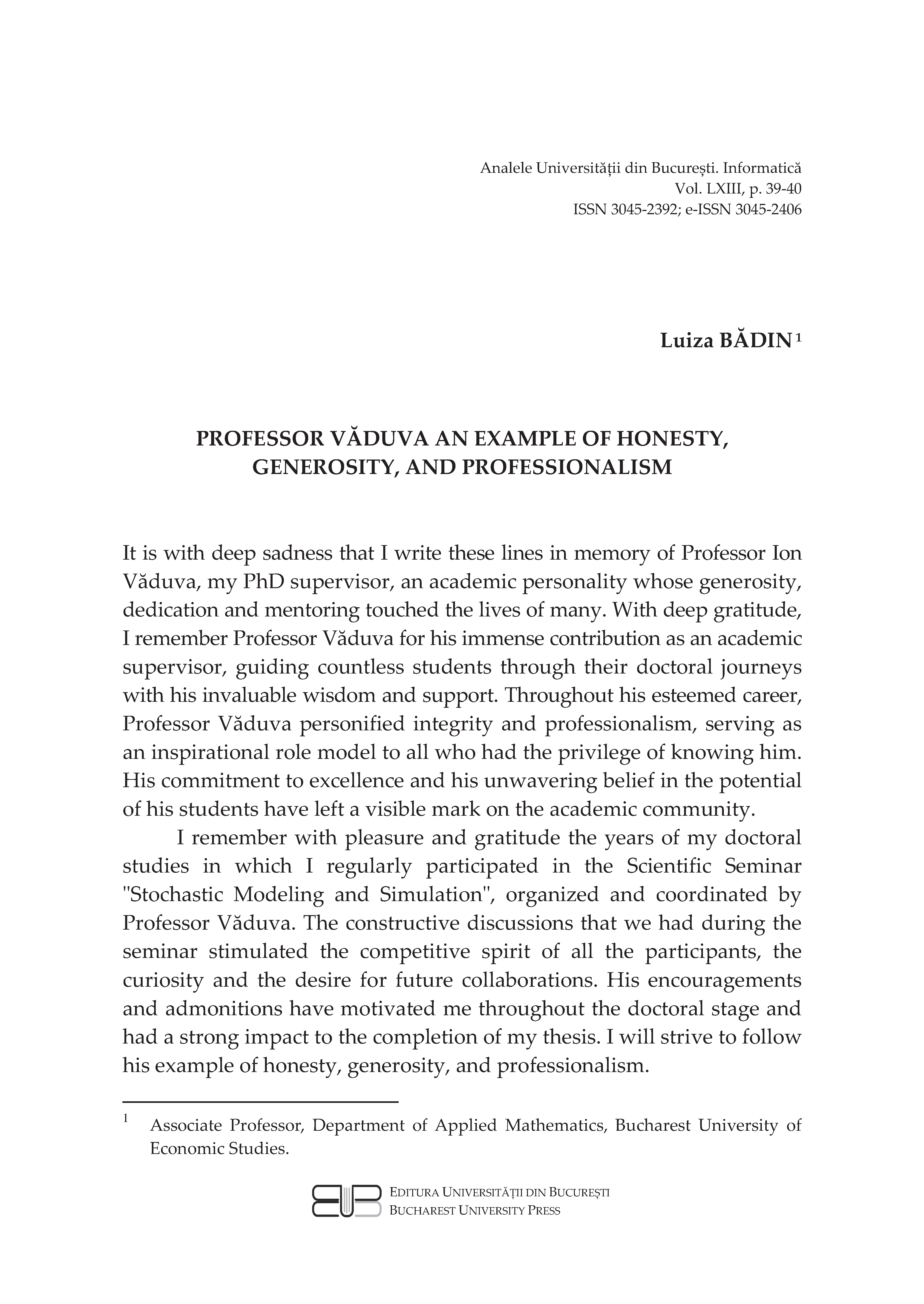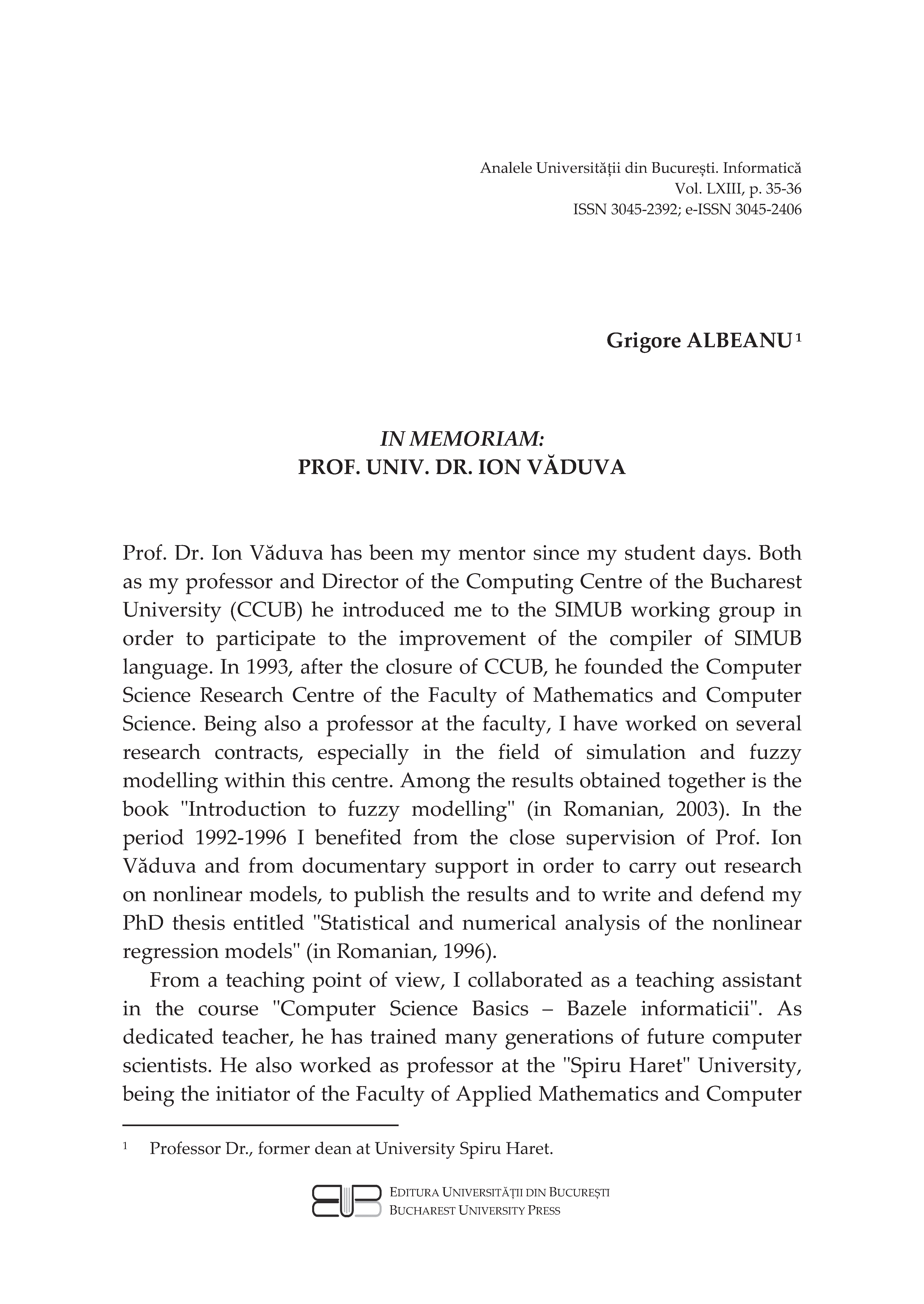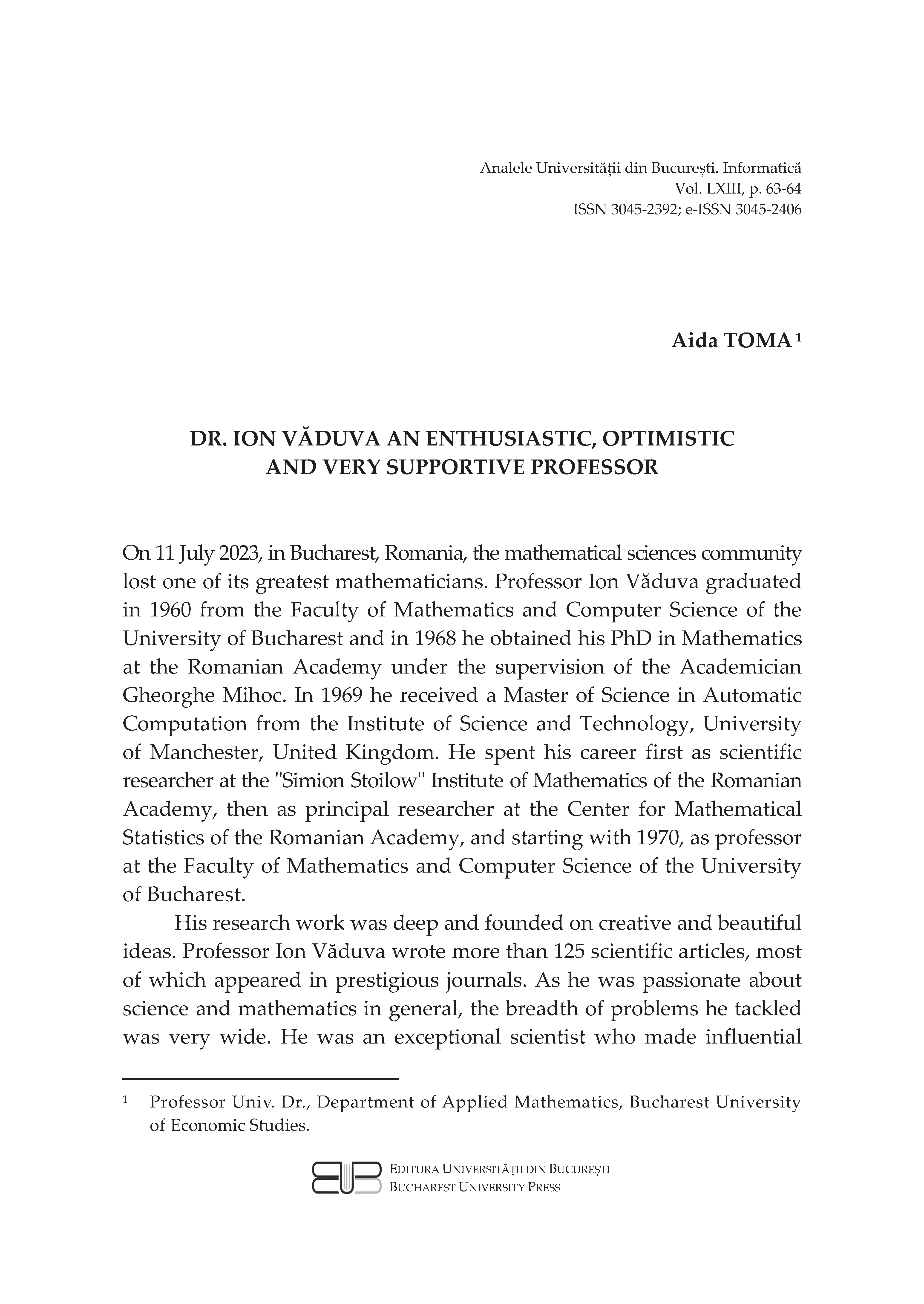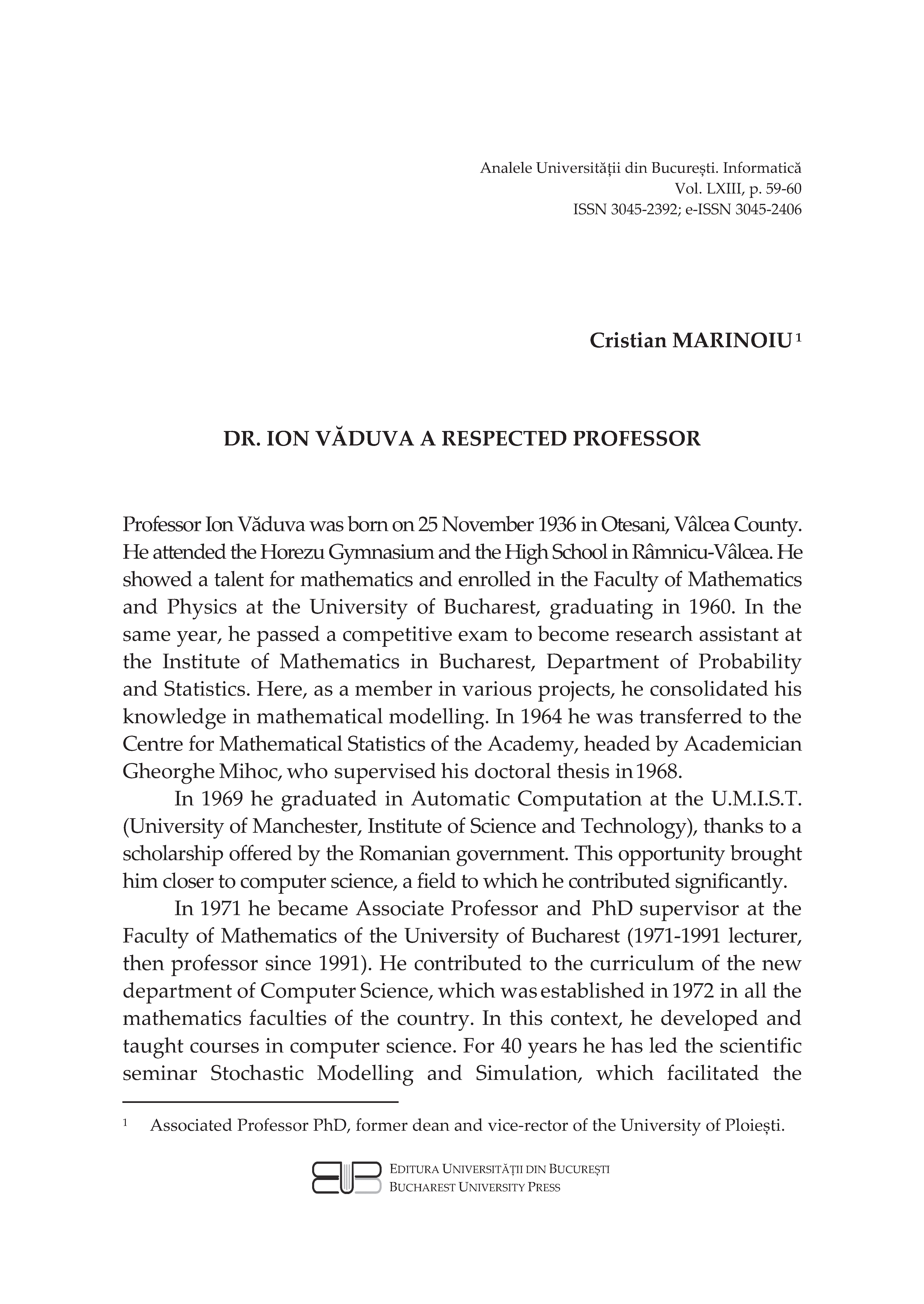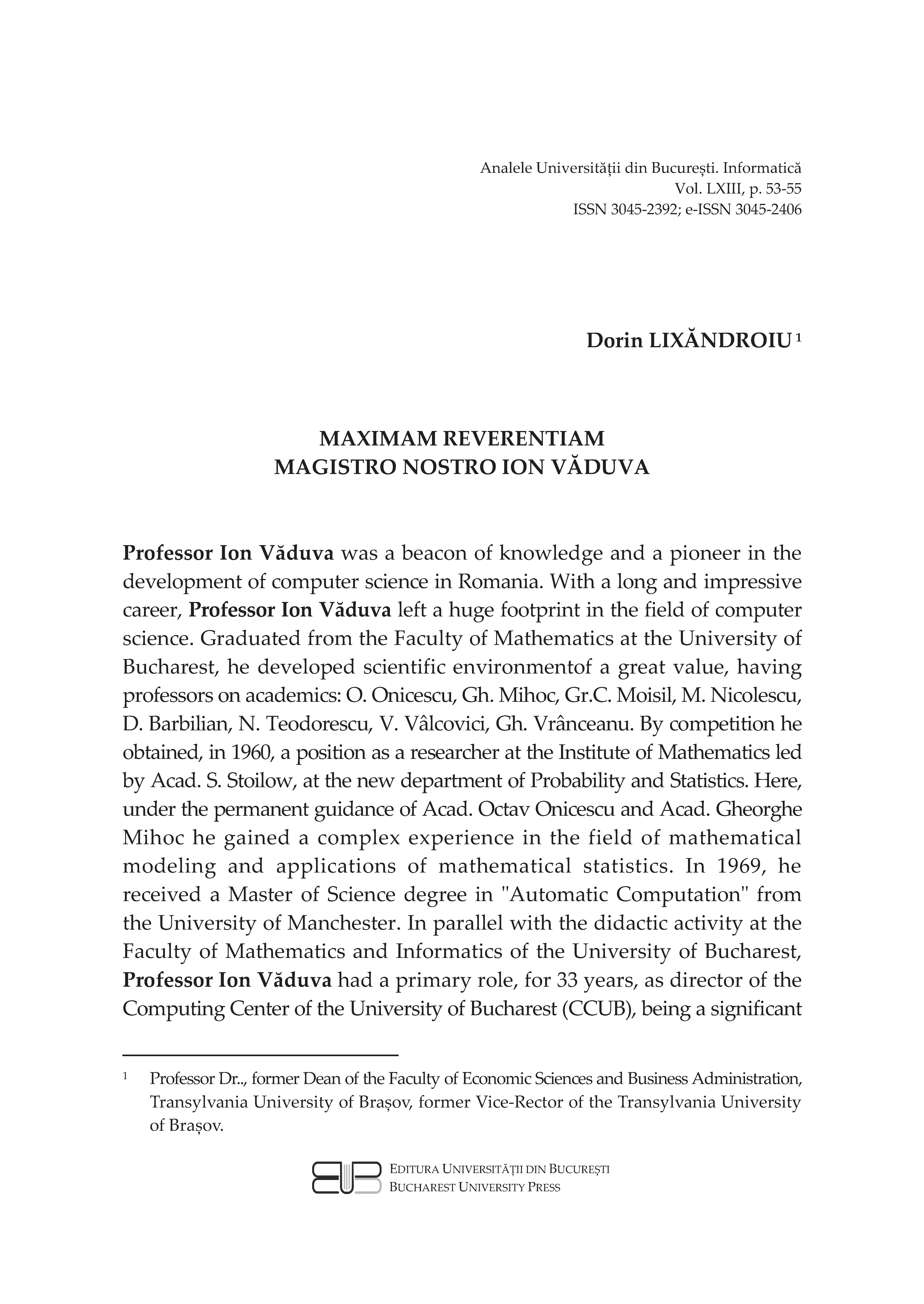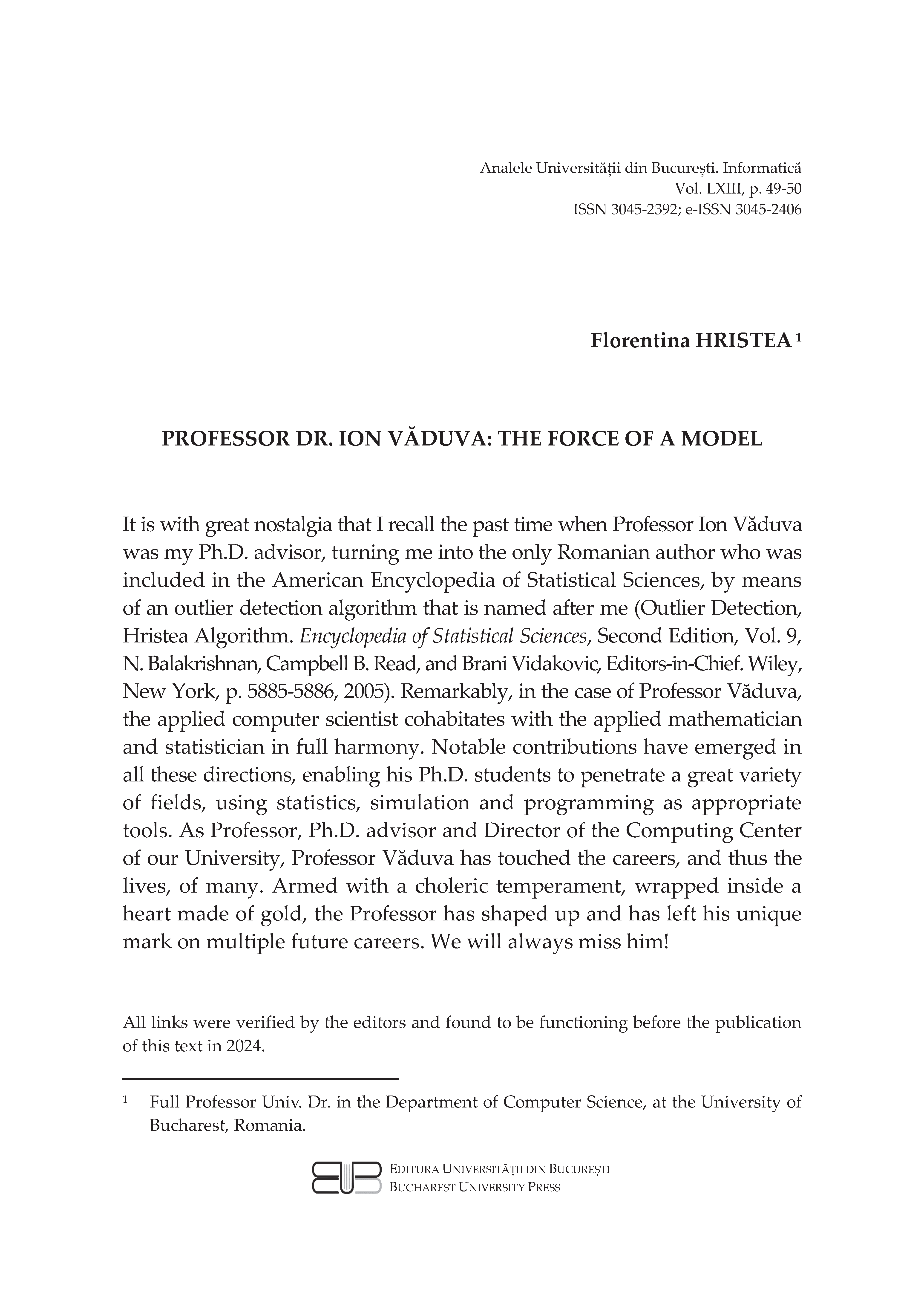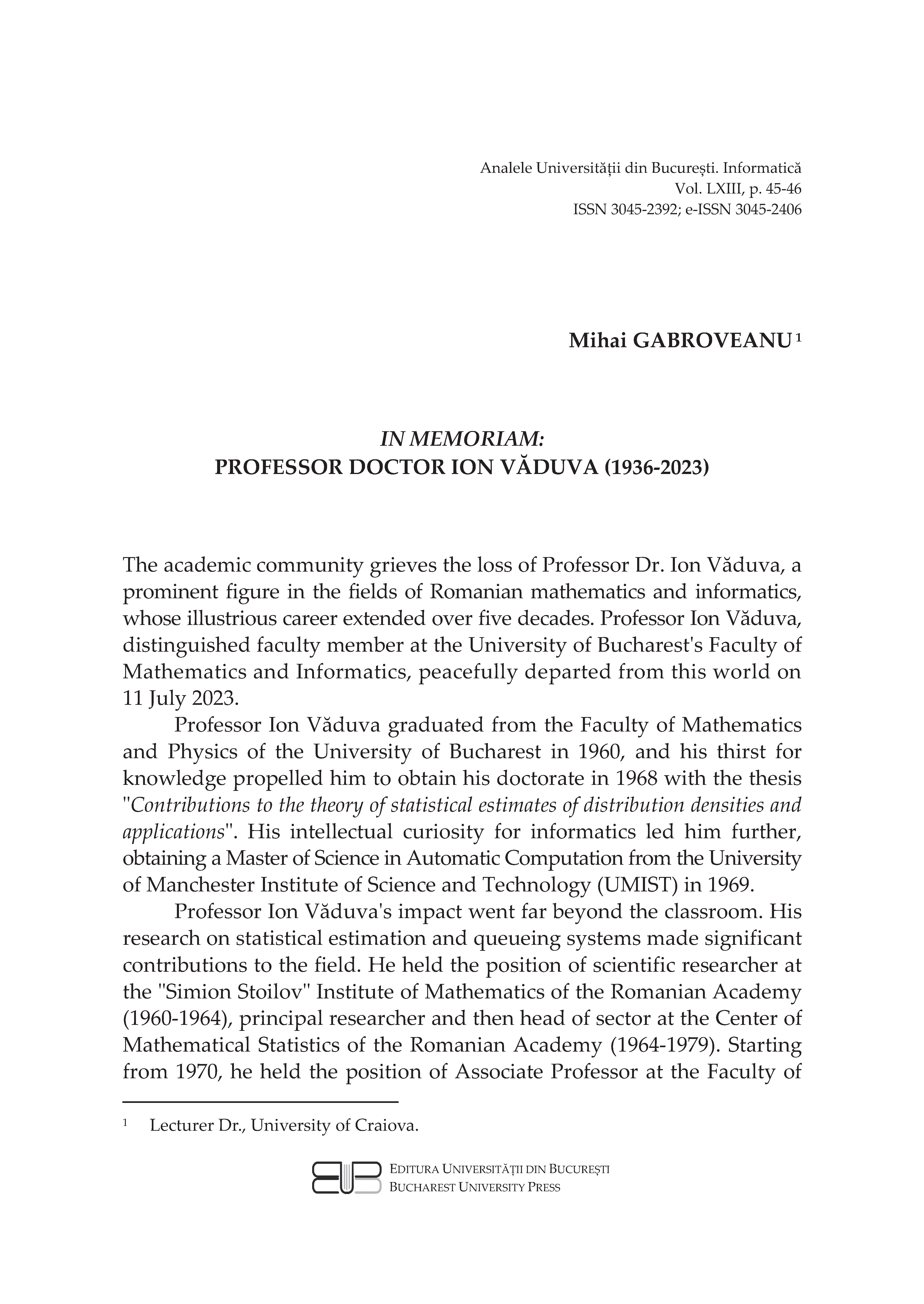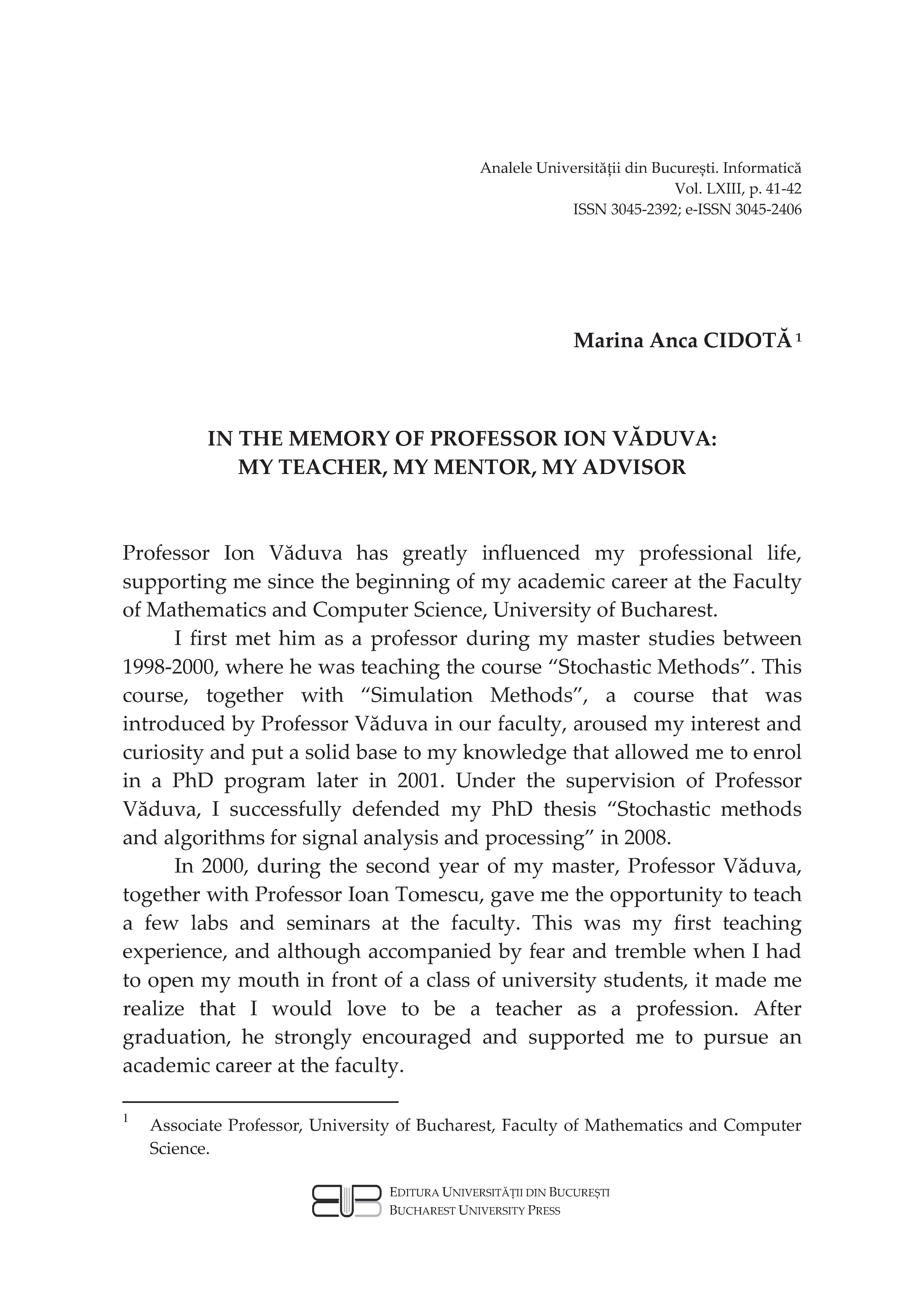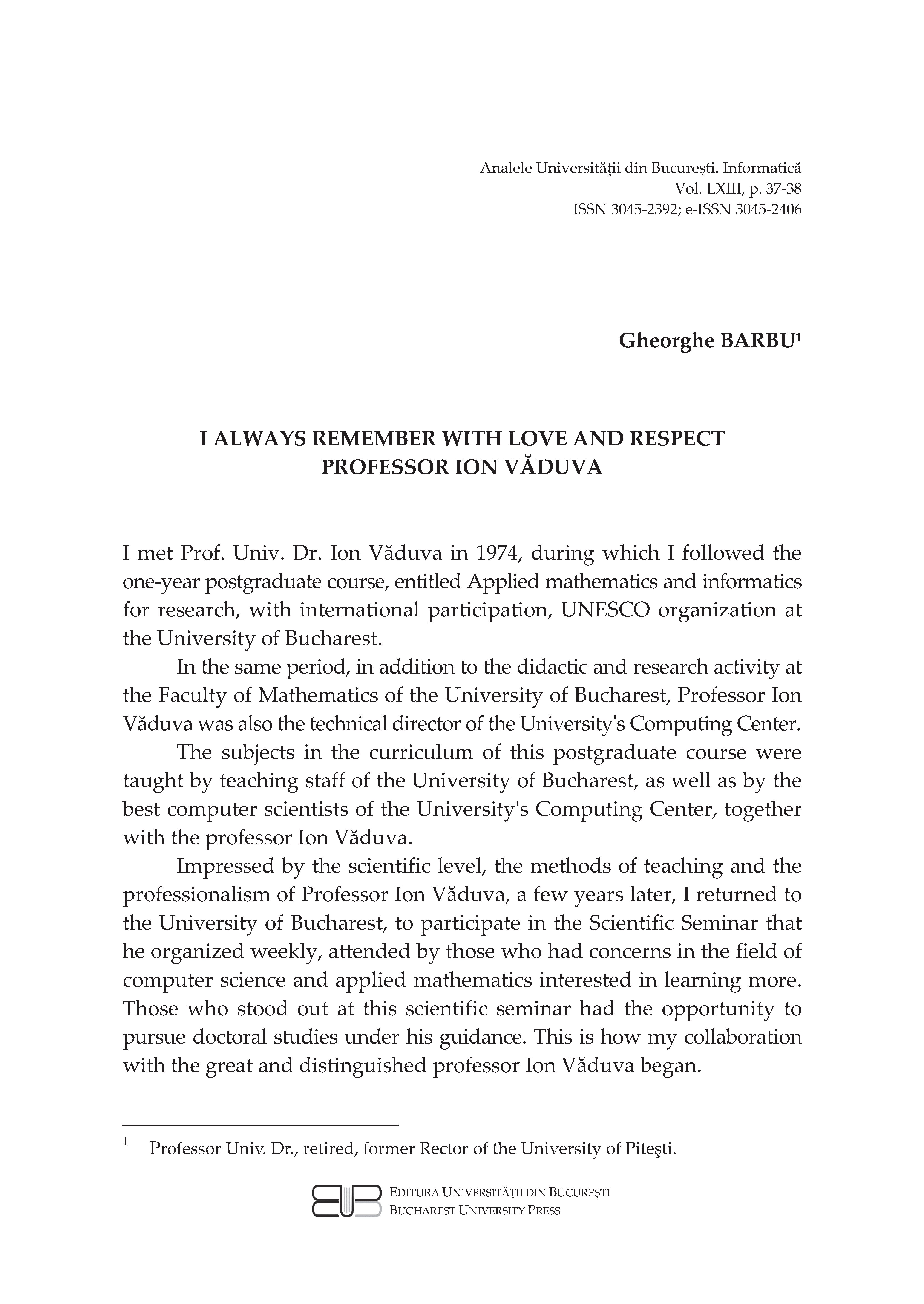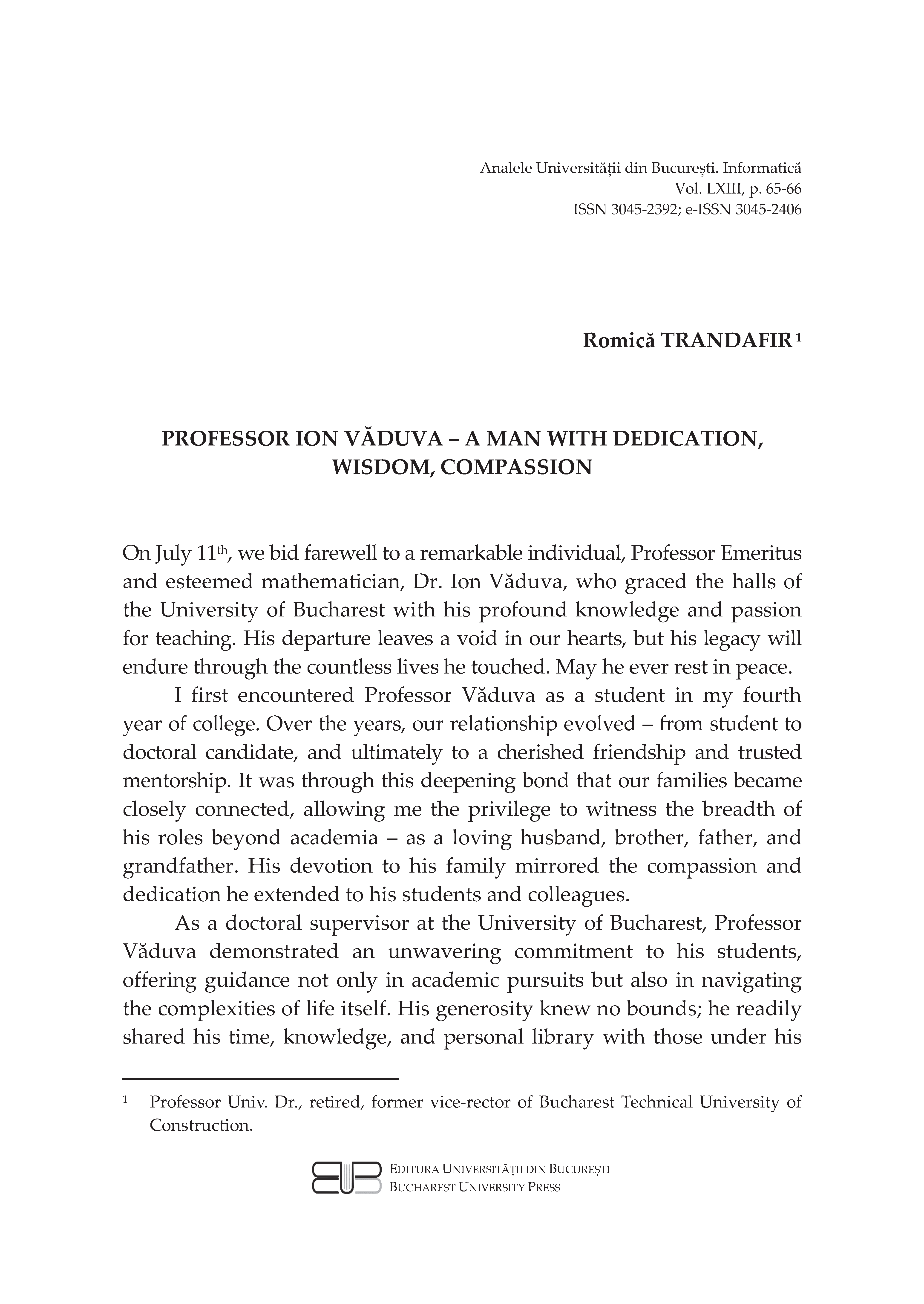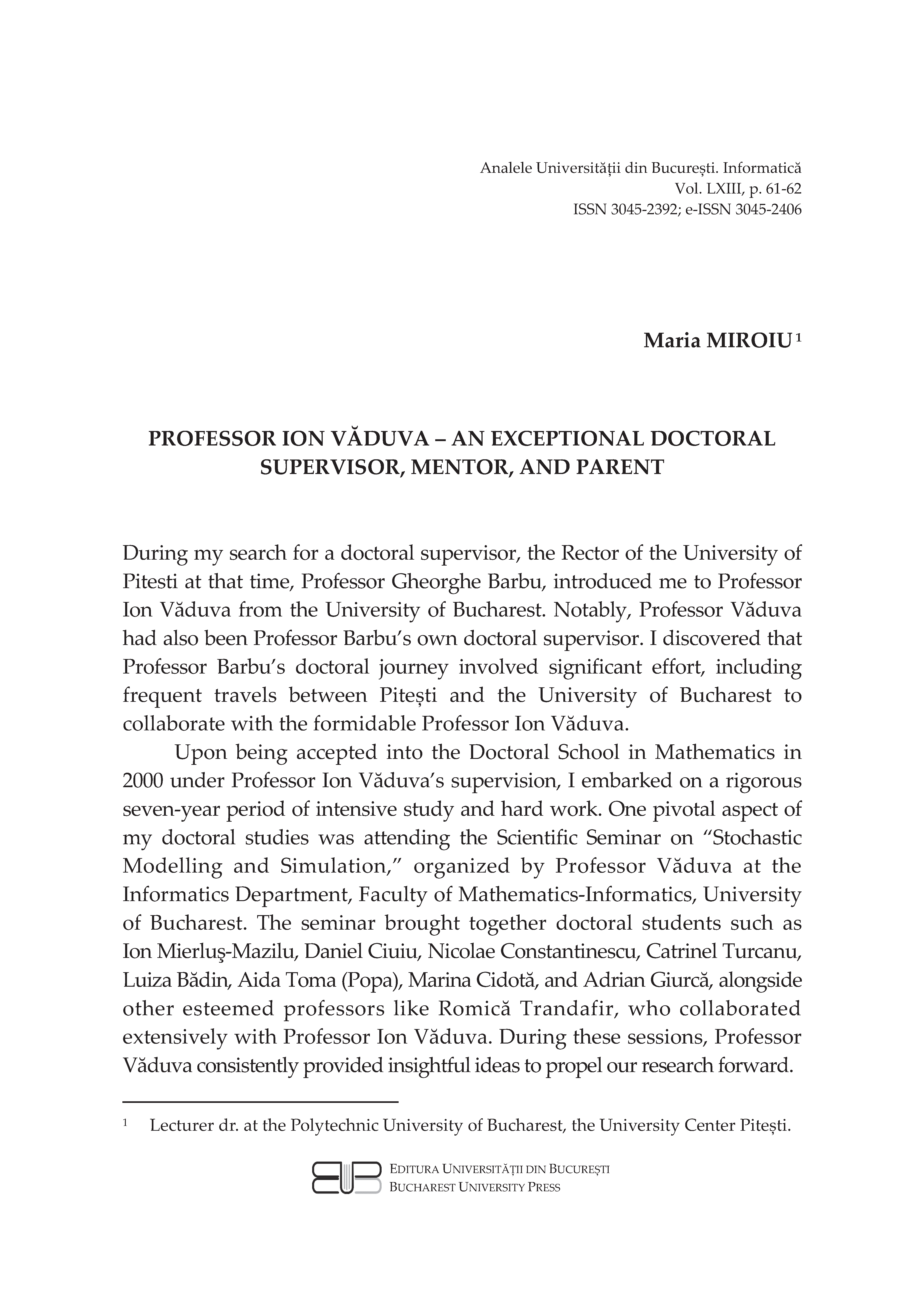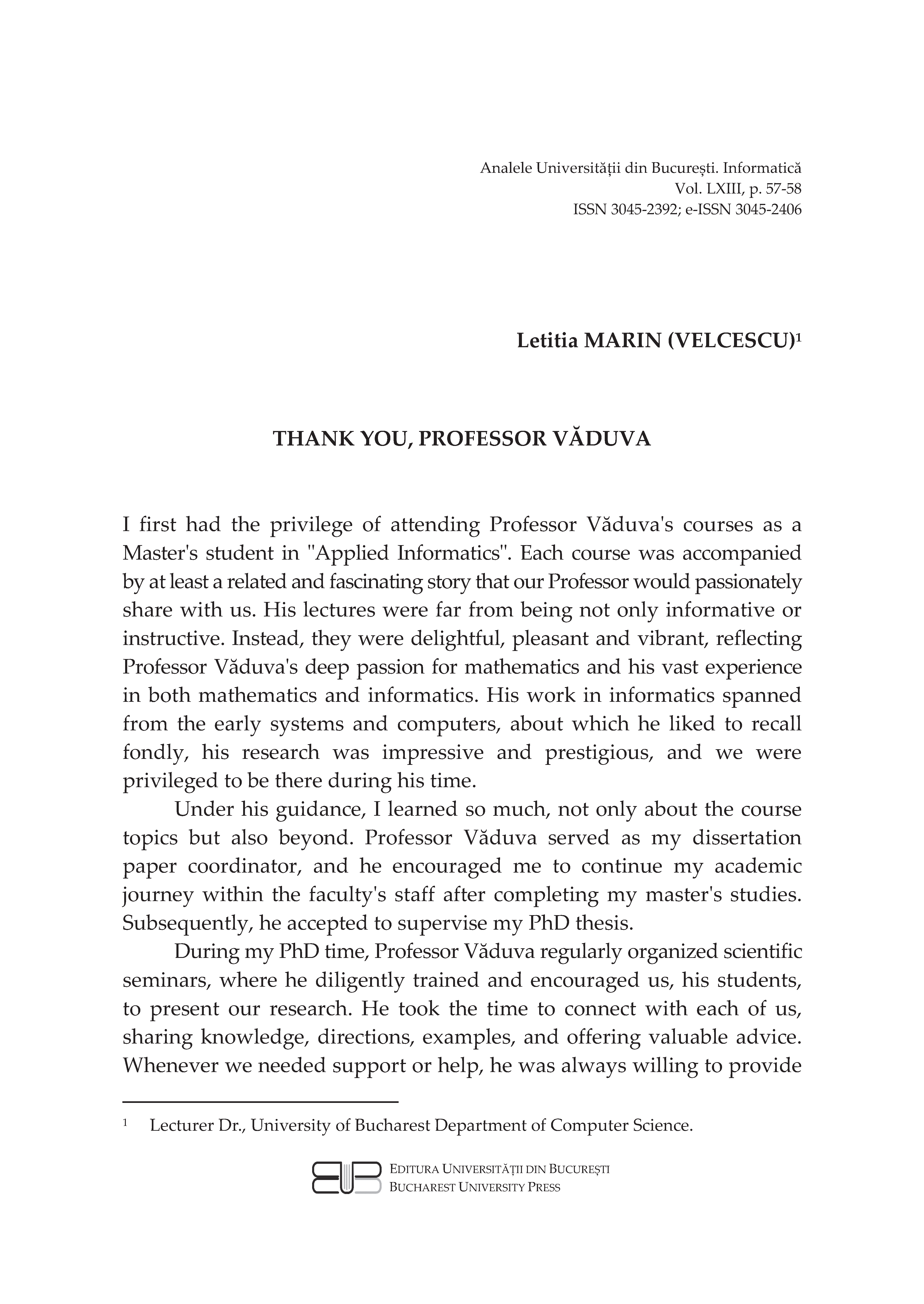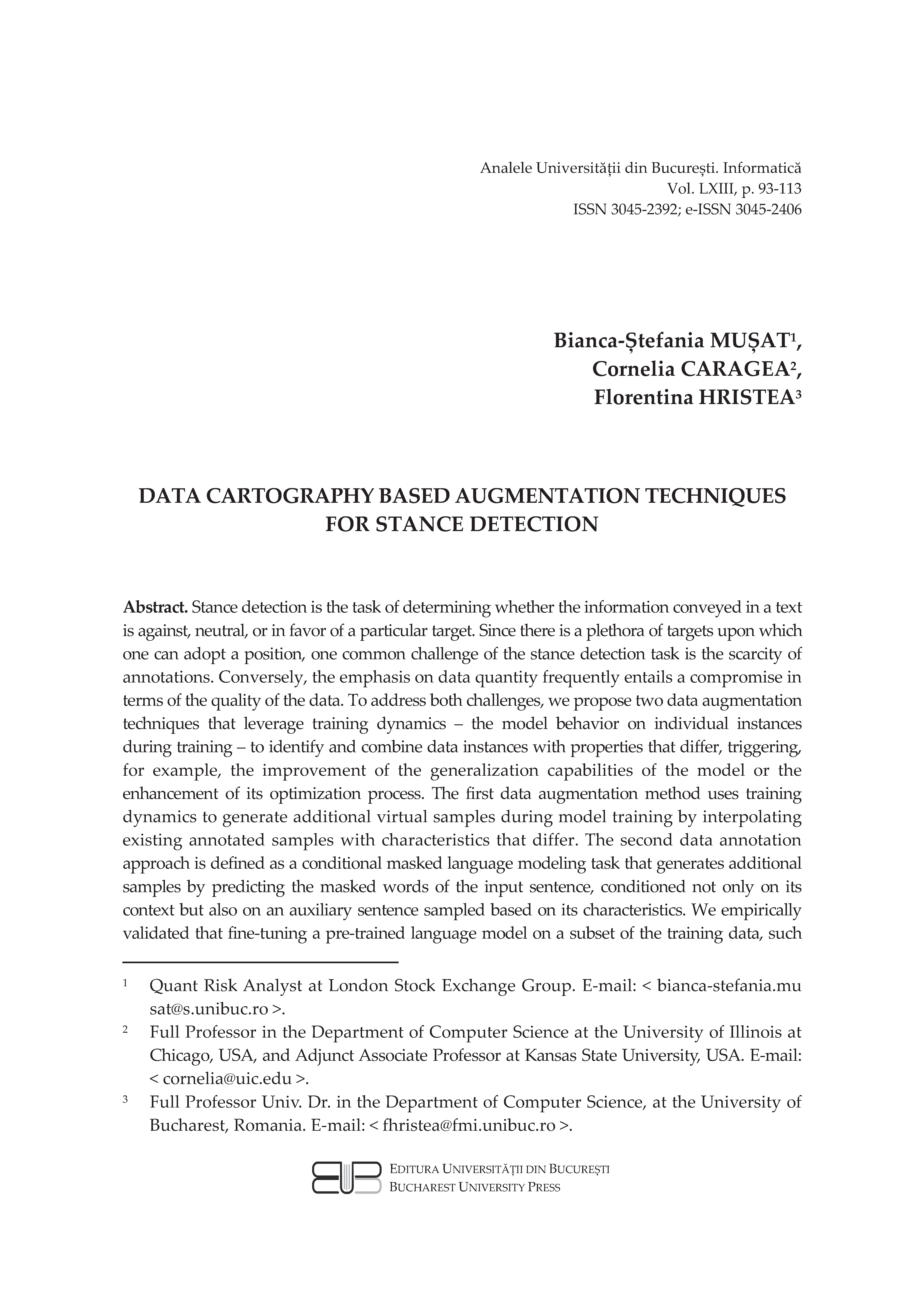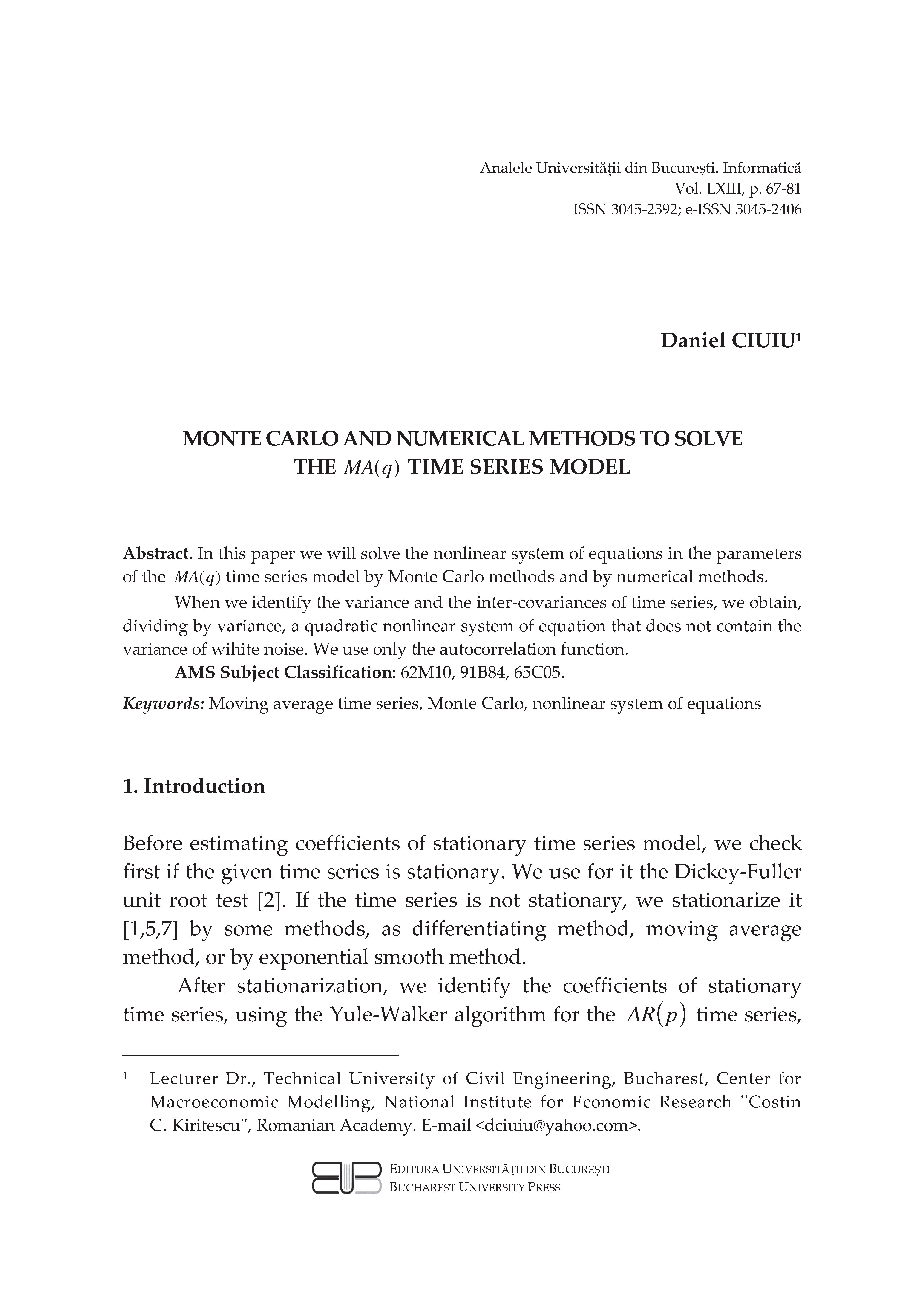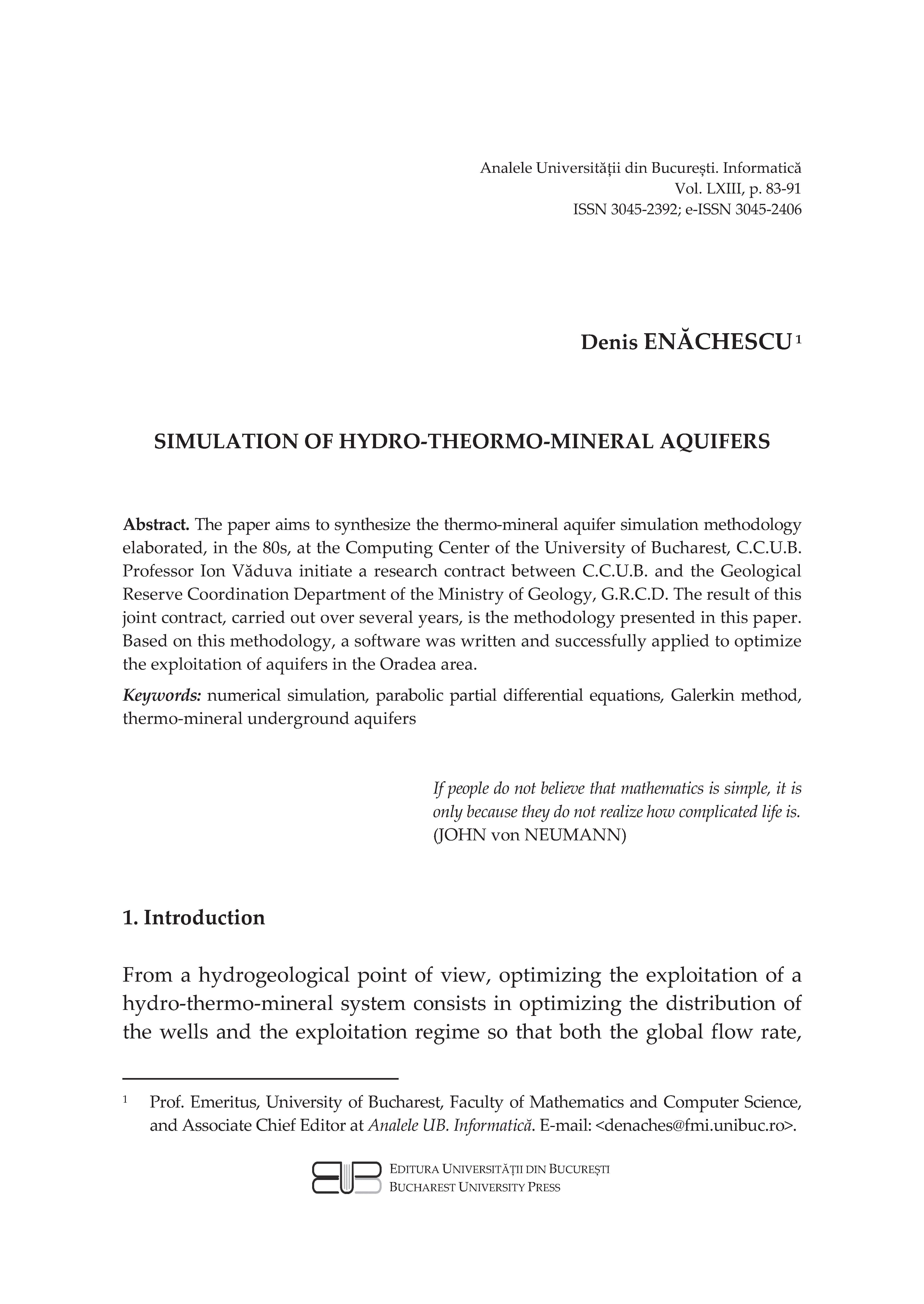About the Journal
The journal is primarily devoted to papers in Computer Science. It will also publish a list of open problems, reviews of books, monographs, proceedings and miscellanea. Of great interest are the following domains: Artificial Intelligence, Automata Theory, Computational Complexity, Computer Simulation and Monte Carlo Methods, Formal Languages, Program Schemes, Theory of Programming Languages, Recursive Functions. Other topics, such as Boolean Algebra, Combinatorics, Constructive Mathematics, Graph Theory, Computational Statistics and Numerical Analysis are also included, to the extent to which they are relevant to Computer Science.
Current Issue
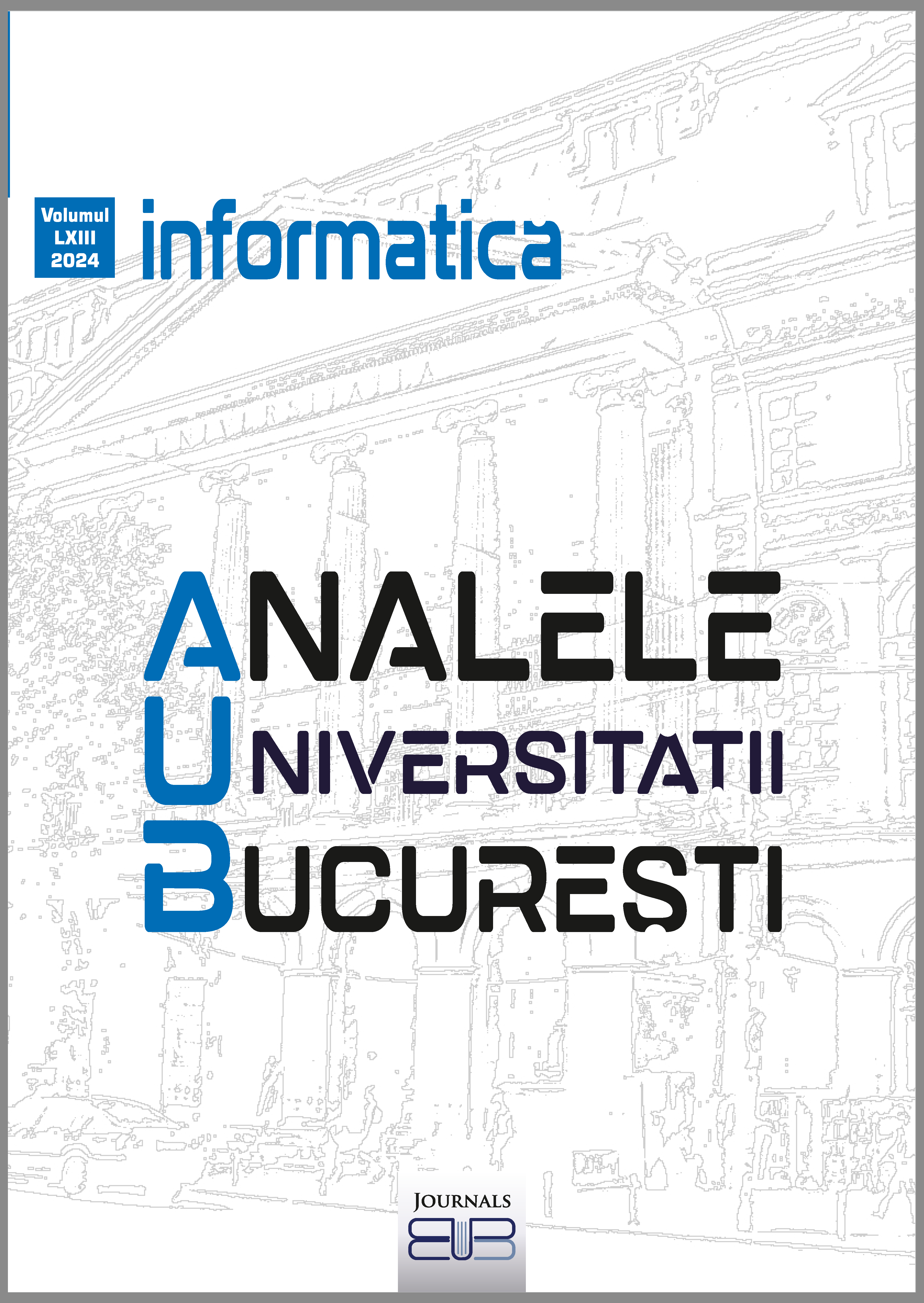
The journal is primarily devoted to papers in Computer Science. It will also publish a list of open problems, reviews of books, monographs, proceedings and miscellanea. Of great interest are the following domains: Artificial Intelligence, Automata Theory, Computational Complexity, Computer Simulation and Monte Carlo Methods, Formal Languages, Program Schemes, Theory of Programming Languages, Recursive Functions. Other topics, such as Boolean Algebra, Combinatorics, Constructive Mathematics, Graph Theory, Computational Statistics and Numerical Analysis are also included, to the extent to which they are relevant to Computer Science.

